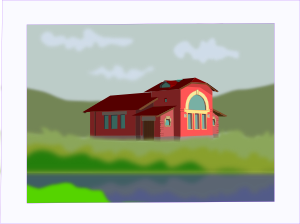Claiming the Principal Residence Exemption
Allan Madan, CPA, CA
Have you sold your principal residence in the year? If yes, this article is for you. This article will look at the most commonly asked questions about the principal residence exemption.
Why is the Principal Residence Exemption So Important?
 In Canada, when you sell your primary home, the entire gain is completely tax free. A principal residence can be a house, a condo, or a co-op including the adjacent land up to 1.2 acres large. To be considered as a principal residence, you or your spouse must have lived in the property. Furthermore, you can only claim one principal residence per family. For example, if you claim your primary home as your principal residence, and you also have a cottage, you cannot claim the cottage as a principal residence. This exemption is calculated by multiplying the gain you made on selling your home by a specified percentage. This specified percentage is equal to 1+ (the number of years that you lived in the home) divided by the number of years that you have owned the home). If you are a non-resident of Canada, you might be asking if the principal residence applies to you. There are special rules for non-residents claiming the principal residence exemption. For example, if you have owned your home for a period of ten years but have only occupied the home for five of those years then you can claim the principal residence exemption on 60% of the gain made on the sale.
In Canada, when you sell your primary home, the entire gain is completely tax free. A principal residence can be a house, a condo, or a co-op including the adjacent land up to 1.2 acres large. To be considered as a principal residence, you or your spouse must have lived in the property. Furthermore, you can only claim one principal residence per family. For example, if you claim your primary home as your principal residence, and you also have a cottage, you cannot claim the cottage as a principal residence. This exemption is calculated by multiplying the gain you made on selling your home by a specified percentage. This specified percentage is equal to 1+ (the number of years that you lived in the home) divided by the number of years that you have owned the home). If you are a non-resident of Canada, you might be asking if the principal residence applies to you. There are special rules for non-residents claiming the principal residence exemption. For example, if you have owned your home for a period of ten years but have only occupied the home for five of those years then you can claim the principal residence exemption on 60% of the gain made on the sale.
Can I Claim the Principal Residence Exemption if I Rent Out a Portion of my Home?
You can still claim the exemption for your entire home so long as these three conditions are met:
- The portion of the home that you rent out is relatively small compared to the overall size of the home
- You did not make any structural changes to get your home ready to rent
- You did not claim capital costs allowance on the rental portion of your home
Unless all three conditions are met, you cannot claim the principal residence exemption on the rental portion of your home when you sell it. If you buy a home for an adult child (18 years or older), your child can claim the principal residence exemption on its sale if they ordinarily reside there. This is extremely helpful if you have adult children who are attending post-secondary education away from home and require housing.
So Here’s the Tip:
When you sell your home, contact your accountant to see if you qualify for the principal residence exemption. If you are planning on selling a home that is not your principal residence or if you have other real estate investments, consider reading this article regarding the tax on real estate sales in Canada.
Disclaimer
The information provided on this page is intended to provide general information. The information does not take into account your personal situation and is not intended to be used without consultation from accounting and financial professionals. Allan Madan and Madan Chartered Accountant will not be held liable for any problems that arise from the usage of the information provided on this page.



